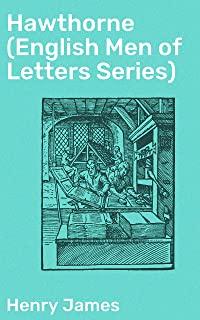
Hawthorne is a book of literary criticism by Henry James published in 1879. The book was an insightful study of James' great predecessor Nathaniel Hawthorne. James gave extended consideration to each of Hawthorne's novels and a selection of his short stories. He also reviewed Hawthorne's life and some of his nonfiction. The book became somewhat controversial for a famous section where James enumerated the items of novelistic interest he thought were absent from American life.
This is the only book-length study James wrote about a fellow novelist, and it is not surprising he picked Hawthorne for such extended treatment. The tradition Hawthorne began in American literature - the morally intense exploration of the universality of guilt and the ambiguities of human choice - was clearly carried on by James.
Although James expressed misgivings about some of Hawthorne's more extravagant symbolism and heavy reliance on allegory, he shared his predecessor's constant interest in moral quandaries, divided loyalties, and the inevitable conflicts between imaginative protagonists and intractable reality. James also shared Hawthorne's passion for careful craftmanship and thorough, unsparing analysis of character.
James' ranking of Hawthorne's novels, from The Scarlet Letter down to The Marble Faun, has generally been accepted by later critics. Although James, at least in his earlier work, was more of a consistent realist than Hawthorne, the later novelist's work always betrays the influence of his predecessor's tendency towards metaphorical expression. In James' final novels such as The Golden Bowl, this influence becomes even more pronounced in extended metaphor and complex symbolism.







